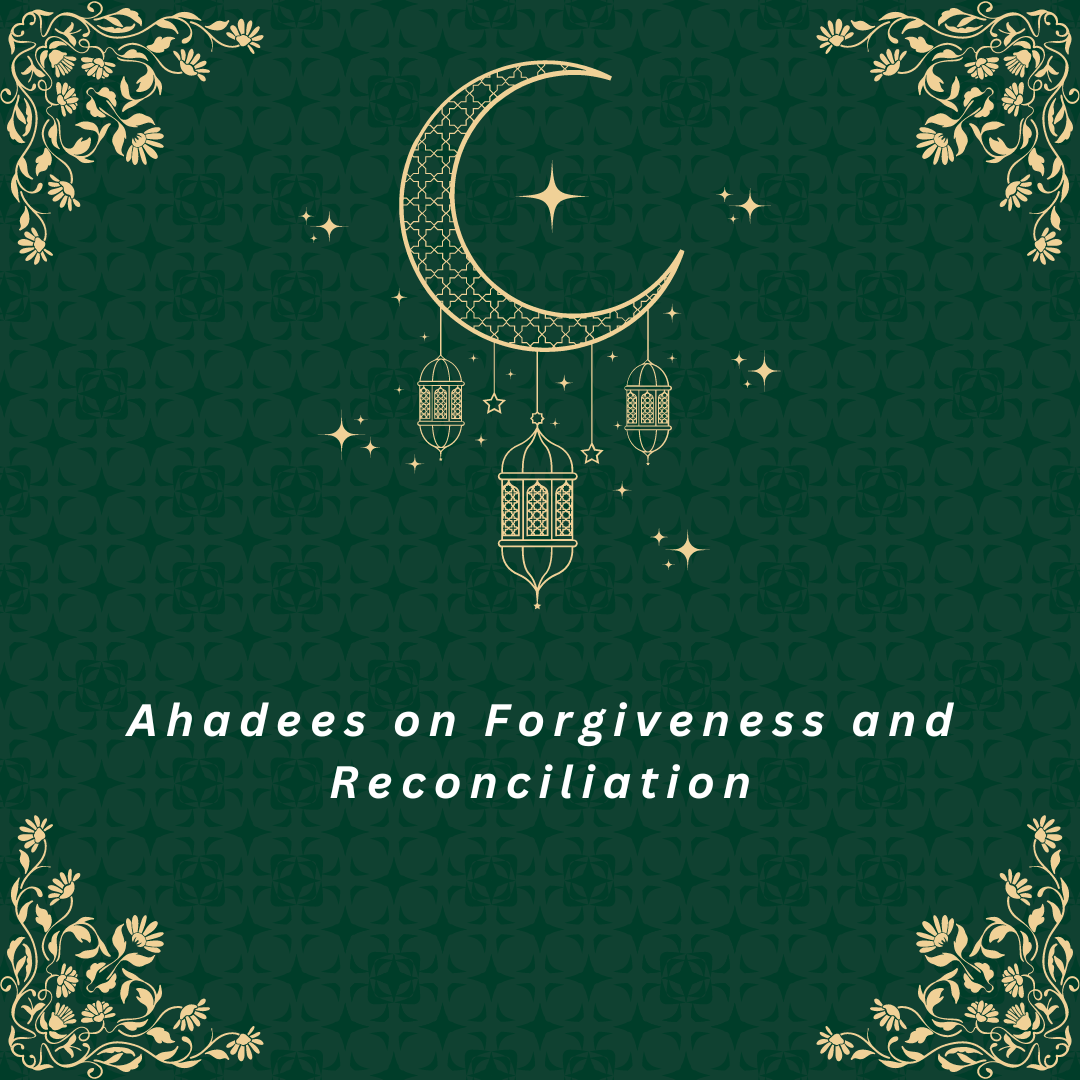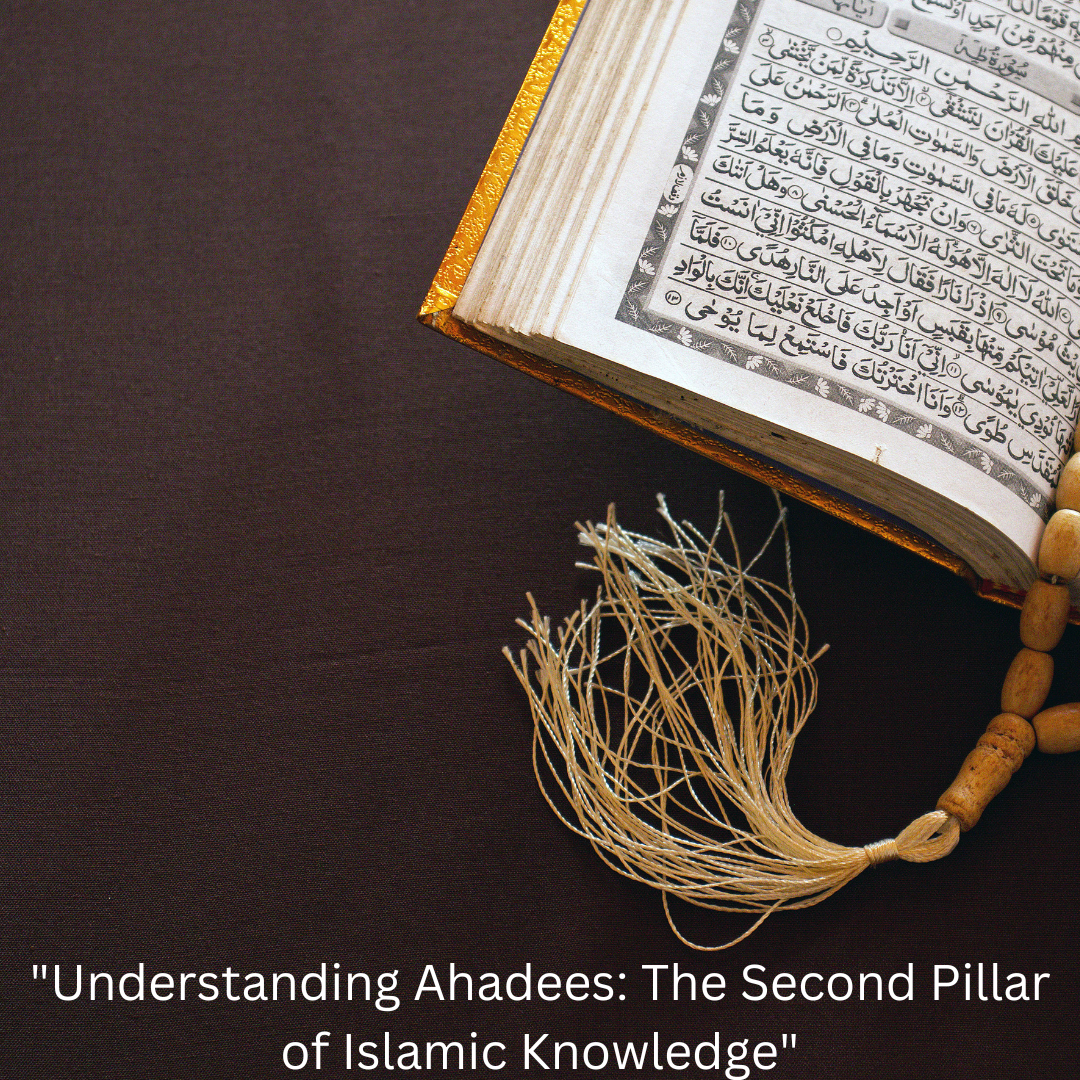Forgiveness and reconciliation are central themes in Islamic teachings, profoundly emphasized in the Ahadees (the sayings and actions of Prophet Muhammad, peace be upon him). These principles foster harmony, peace, and mutual respect within the Muslim community and beyond. The Ahadees serve as a vital source of guidance on how Muslims should embody these virtues in their daily lives.
The Concept of Forgiveness in Islam
Forgiveness in Islam is highly regarded as a noble act, reflecting the merciful nature of Allah. The Quran repeatedly highlights the importance of forgiveness, and the Ahadees further elaborate on its significance. One of the most frequently quoted Ahadees on this subject states:
“The merciful are shown mercy by the Most Merciful. Be merciful on the earth, and you will be shown mercy from above.” (Sunan At-Tirmidhi)
This Hadith underscores the reciprocal nature of mercy and forgiveness. By forgiving others, a Muslim can hope for Allah’s mercy and forgiveness in return. This principle encourages Muslims to overlook the faults and mistakes of others, fostering a compassionate and forgiving community.
Ahadees on the Virtue of Forgiveness
Numerous Ahadees illustrate the Prophet Muhammad’s emphasis on forgiveness. In one instance, he said:
“The strong person is not the one who can overpower others. Rather, the strong person is the one who controls himself when he becomes angry.” (Sahih Bukhari)
This Hadith highlights that true strength lies in self-control and the ability to forgive rather than in physical power or dominance. By controlling anger and choosing to forgive, a Muslim demonstrates a higher level of moral and spiritual strength.
Another Hadith emphasizes the divine reward for those who forgive:
“Whoever suffers an injury and forgives (the person responsible), Allah will raise his status to a higher degree and remove one of his sins.” (Sunan At-Tirmidhi)
This Hadith assures believers that their acts of forgiveness will not go unnoticed by Allah and will result in spiritual elevation and purification from sins.
The Role of Forgiveness in Reconciliation
Reconciliation is a process that seeks to restore relationships and resolve conflicts. Islam places great emphasis on the importance of mending broken relationships and seeking peace. The Ahadees provide clear guidance on how to achieve reconciliation.
The Prophet Muhammad once said:
“Shall I not inform you of something more excellent in degree than fasting, prayer, and almsgiving (charity)?” The people replied: “Yes, Prophet of Allah!” He said: “It is putting things right between people.” (Sunan Abu Dawood)
This Hadith highlights that efforts to reconcile and restore harmony among people are highly esteemed in Islam, even more than some of the fundamental acts of worship. It underscores the value of social harmony and the importance of resolving disputes amicably.
Practical Steps for Forgiveness and Reconciliation
- Self-Reflection: Before forgiving others, Muslims are encouraged to reflect on their own mistakes and seek Allah’s forgiveness. This self-awareness fosters humility and empathy towards others’ shortcomings.
- Control Anger: Managing anger is crucial in the process of forgiveness. The Prophet Muhammad’s teachings emphasize patience and self-control as essential traits for maintaining harmony.
- Seek Mediation: When conflicts arise, seeking the help of a mediator can facilitate reconciliation. The mediator should be a trusted individual who can offer unbiased advice and help both parties find common ground.
- Apologize and Make Amends: For those who have wronged others, it is important to apologize sincerely and make efforts to rectify the harm caused. This act of humility can pave the way for forgiveness and reconciliation.
- Pray for Guidance: Muslims are encouraged to pray for Allah’s guidance in their efforts to forgive and reconcile. Seeking divine assistance can provide the strength and wisdom needed to overcome personal grievances.
Conclusion
The Ahadees provide a comprehensive framework for understanding and practicing forgiveness and reconciliation in Islam. By following the Prophet Muhammad’s teachings, Muslims can cultivate a forgiving and harmonious society. The emphasis on these virtues not only promotes personal spiritual growth but also strengthens communal bonds, reflecting the true spirit of Islamic compassion and mercy.



